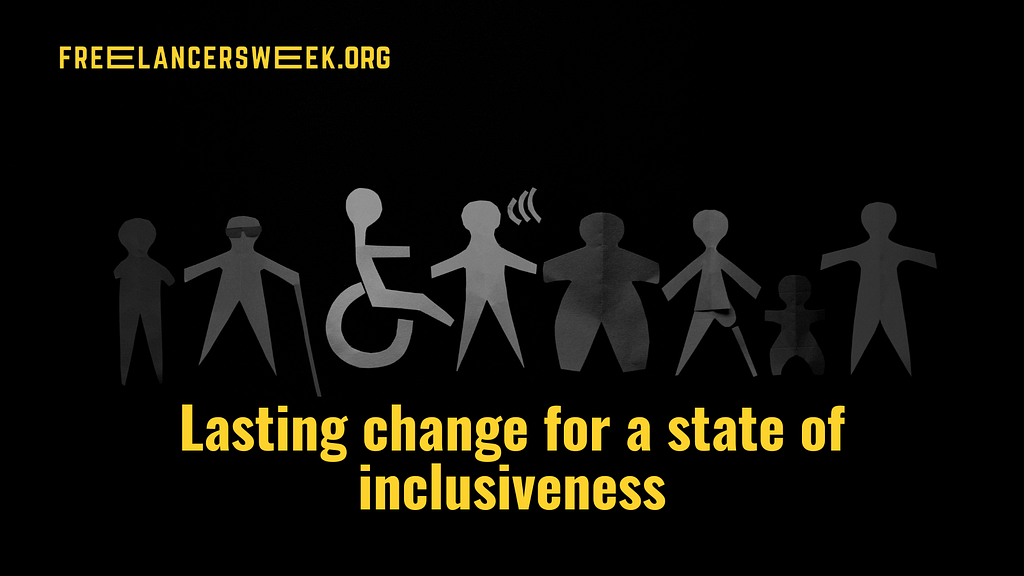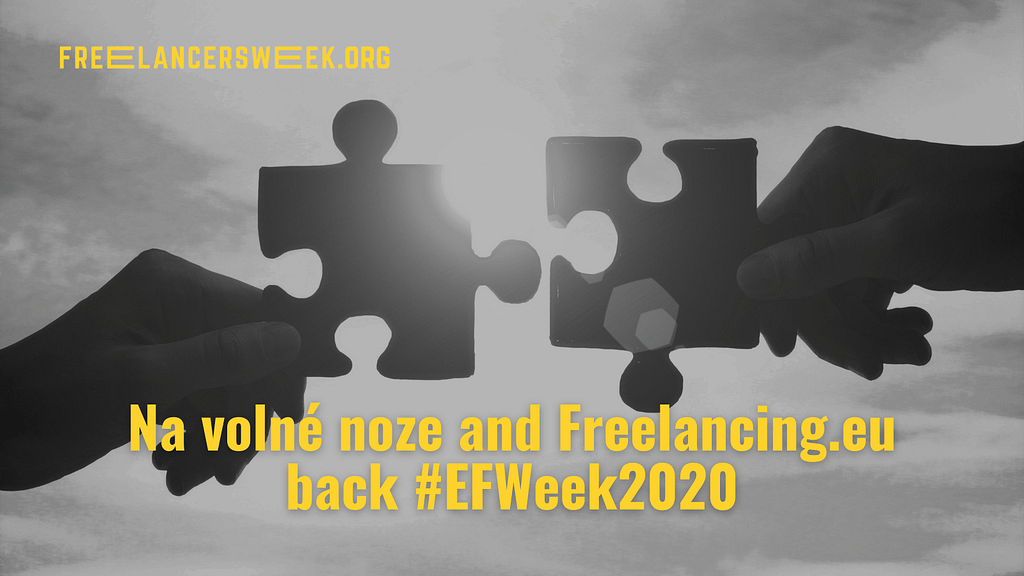Running for the sixth year, the European Freelancers Week has witnessed the freelancing industry rapidly evolve, and EFWeek2021 brings freelancers and independent workers together as ever to celebrate the strides made in the past year and have a look at what changes we would like to see in the upcoming year.
We are nearing two years of the Covid-19 pandemic, and the freelancing and independent worker industry has clearly been at the center of this exciting shift—seeing digital freelancing accelerate. There are two factors that are driving digital freelancing in the ‘new normal’.
Working remotely or working from home
According to a study, 19% of corporate executives globally believe that employees will work remotely for 3 days or more in the new normal. This impacts the entire working ecosystem – and for the independent workforce who is accustomed to remote working – it means that more clients are willing to open themselves to ‘out-of-office’ type work.
The pandemic made it clear, productivity isn’t always increased when sitting in an office, and that people can be trusted to do their work without being subjected to this environment.
Additionally it is no secret that working remotely is kinder to people’s pockets and wellbeing than traveling long distances. It is therefore no surprise that working from home makes a lot of economic sense for most people too post the outbreak of the virus too.
Technology
The Internet has now become a ‘critical national infrastructure’ according to Adam McHale, the European Vice President of Cisco.
Access to information and research is at just about everyone’s fingertips. Countless opportunities to find work on a number of platforms are possible, and apps upon apps designed to make a freelancers’ job more streamlined and professional.
Interestingly enough, for young people entering into the job market, their vocational experience makes them quite attractive to the new market too. They are essentially micro-entrepreneurs by selling and renting goods and services through the use of technology and this experience can be valuable skills to an organisation.
The two above-mentioned aspects have evolved over the last year, accelerating digital freelancing and allowing independent workers to compete for jobs equally across the globe.
However, much still needs to be done to protect the rights and future of independent workers compared to their salaries counterparts.
This article states that; ‘the European Commission has made clear the European SME Definition should “acknowledge freelancers as a stand-alone category within the definition and legitimise the smallest of small businesses, those who – with a 45% increase since 2000 are the fastest growing segment of the EU labour market.” – and yet freelancers are marginalised due to their nature of work. The once ‘inconsistent income’ stigma means things like healthcare insurance and securing loans are a lot harder to come by.
This year, European Freelancers Week is inviting freelancers and independent workers to once again join the seven-day digital celebration across Europe. The theme: ‘Stand Up. Speak Up. Show Up.’ calls for collective action to be taken by all that work in this ever-growing industry.
People are welcomed to submit events that bring freelancers together to continue building the network and to work towards resolving real world problems from 18 October to 24 October.
Follow social media platforms for more information on other events lined up:





